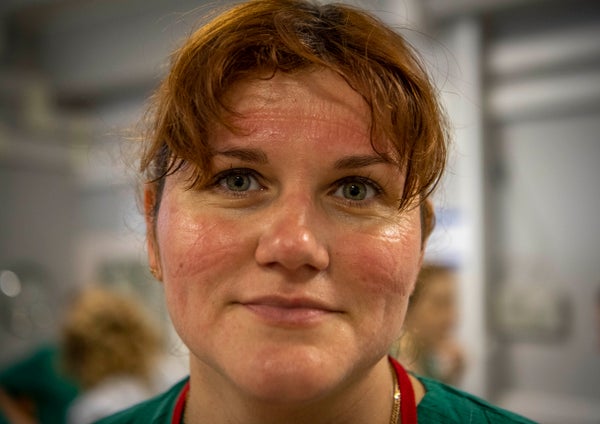This article was published in Scientific American’s former blog network and reflects the views of the author, not necessarily those of Scientific American
The World Health Organization declared 2020 to be the “Year of the Nurse and Midwife” in celebration of the 200th birthday of Florence Nightingale (1820–1910). Across the globe many organizations, professional associations, health care systems and other entities were poised to affirm this theme and celebrate the many roles and contributions of nurses in advancing the health and welfare of people in every nation.
It was completely unexpected that this would also be the year of an international health crisis—a pandemic that has now touched every level of society. Today the entire world is grappling with the impact of the coronavirus (COVID-19) pandemic. Nurses are frontline in this environment.
On March 10, 2020, with some 180,00 cases and 4,000 deaths worldwide, the WHO declared the coronavirus outbreak a pandemic. This clarion call sent a message that everyone has a role in actively preventing further spread of the virus and seeking ways to protect those most at risk. This type of call to action is not new to nursing. Throughout history, the nursing profession has played major roles in stepping into times of crisis and providing care and innovation that has saved lives and reduced suffering. This brutal COVID-19 situation will be no different.
On supporting science journalism
If you're enjoying this article, consider supporting our award-winning journalism by subscribing. By purchasing a subscription you are helping to ensure the future of impactful stories about the discoveries and ideas shaping our world today.
Nursing’s contributions to improving the public’s health during times of crisis dates back to the days of Nightingale, modern nursing’s founder. In 1918 during the disastrous influenza pandemic, nurses were steadfast in modeling the teachings of Nightingale, a staunch supporter of good handwashing, proper sanitation and sound preventive measures (see Tea, Coffee and Cocoa for the Sick, Scientific American, July 2, 1860). Members of the Visiting Nurses Associations made home visits to patients providing critical nursing care as one of the only treatment measures available during that time. Nurses were vigilant in promoting the benefits of being exposed to fresh air, practicing good hand hygiene and maintaining social isolation while conducting home visits to patients.
In subsequent decades, nurses answered the call again and again, serving as front line providers during some of the world’s most recent infectious disease outbreaks, including H1N1 Swine Flu, Ebola, severe acute respiratory syndrome (SARS), and Middle East respiratory syndrome (MERS).
Just as in previous disease outbreaks, nurses across the globe have been stepping up to combat the deadly spread of COVID-19, a virulent global outbreak that has produced staggering numbers of cases and deaths. As of April 23, over 2.6 million infected individuals had been reported worldwide, with over 185,000 deaths due to COVID-19.
From providing direct care to affected hospitalized patients to leading full scale public health operations, nurses are front and center working around the clock to protect the health and well-being of patients and the public at large. While public health nurses have traditionally been recognized for their efforts during times of a public health crisis, now nurses in acute care settings are applying evidence-informed public health principles to prevent disease and care for some of the world’s sickest hospitalized patients. Today’s nurses are leading response teams demonstrating skill and expertise in areas such as disaster preparedness, predictive modeling, hospital and field operations, and human resource management, to name a few.
As nurses with considerable expertise in health care, we are very proud of nurses everywhere as they provide services during the current pandemic. An overwhelmingly majority of U.S. nurses have never dealt with anything of such magnitude during their nursing careers; it’s probably more accurate to say none of us have.
And while nurses are our most valuable asset during this crisis, they are not exempt from experiencing unintended consequences such as accidental exposure to the virus or physical and psychological fatigue. Efforts are underway to ensure that all nurses have the proper personal protective equipment to care for patients while protecting themselves. In addition, the International Council of Nurses (ICN) has published a list of COVID-19 top priorities, a global call to action for fighting the coronavirus.
Even with the many advances in health care and technology, any progress in effectively combating the COVID-19 virus would cease to exist without the expert and compassionate care of nurses. Nurses will always be on the front lines caring for the world at large way beyond our current global pandemic. Nursing’s presence is a real cause for celebration, both during and beyond the Year of the Nurse and Midwife.
Read more about the coronavirus outbreak from Scientific American here, and read coverage from our international network of magazines here.
